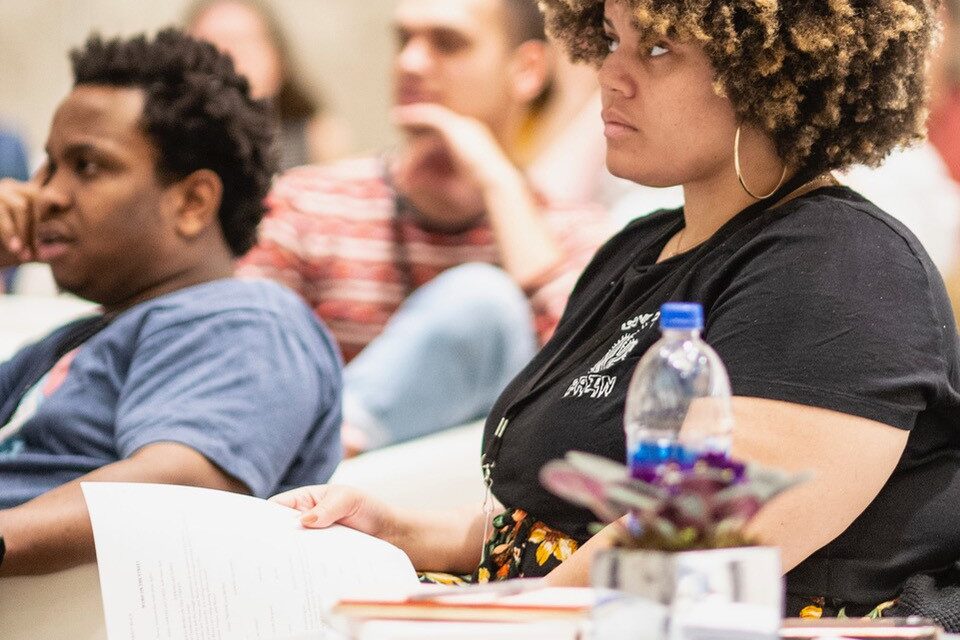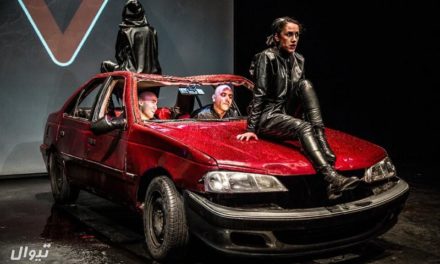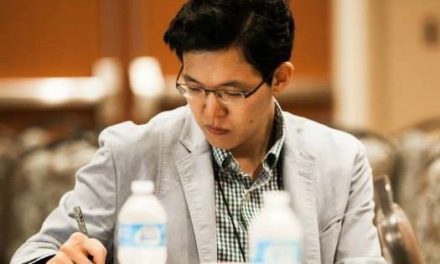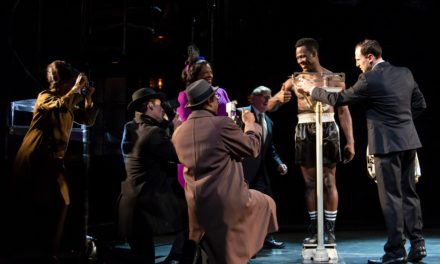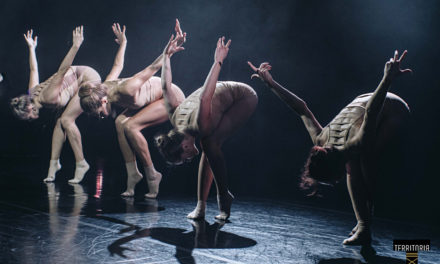In the face of many challenges in Summer 2021, The John F. Kennedy Center for the Performing Arts moved forward with its 10th annual Dramaturgy Intensive deploying a virtual mode. As the Center celebrated its 50th Anniversary Season, the Dramaturgy Intensive was also an integral part of its “looking ahead to a bright future.” The organizers, Mark Bly (Director of the Kennedy Center Dramaturgy Intensive) and Gregg Henry (Artistic Director of Kennedy Center American College Theater Festival,) both Co-founders of the Dramaturgy Intensive, along with Deputy Director Lynde Rosario (incoming President of LMDA) embraced the challenge with a heightened awareness of our country’s volatile political and racial climate. The Kennedy Center Dramaturgy Intensive featured many guest artists, including dramaturgs, literary managers, and playwrights. While nothing replaces in-person connections and mentoring, the Intensive was a precious and informative time of scholarship, dramaturgy, and artistic development for the 2021 fellows.
As part of the pivot to the digital space, the Dramaturgy Intensive partnered with Literary Managers and Dramaturgs of the Americas (LMDA) to provide access to their asynchronous/synchronous conference in Mexico City, MX: “Without Borders” Dramaturgy in a New Decade / Sin Fronteras: Dramaturgismo en la Nueva Década.” The international conference was helmed by Brenda Muñoz Salazar, Maria de Lourdes Guzmán González, Bryan Moore, Martine Kei Green-Rogers, Brian Quirt, and Ken Cerniglia, and other leaders in the field. The partnership with LMDA Conference enabled the 2021 Dramaturgy Fellows to hear from dramaturgs from the United States and those working in international theatres. Brenda Munõz, who helped with the organization of the 2021 LMDA Conference in Mexico City, reflects on the experience:
“Without Borders: Dramaturgy in the New Decade” was born out of the desire to transcend the geographic, cultural, and linguistic frontiers that came with hosting the very first LMDA Conference in Mexico. The goal was to facilitate the connection between the growing community of LMDA in the United States, Canada, and Mexico and foster a space for exploration, investigation, and exchange accessible for all. We spoke two languages at once and communicated through the distance, and by doing so, we were exploring new and different ways to practice dramaturgy in the context of the ongoing decade.
This idea of “new and different ways” was a through-line from the asynchronous conference to the synchronous Kennedy Center Dramaturgy Intensive.
The Introductory Day of the Intensive began with a session from Groundwater Arts, “Decolonizing the Theatre.” Led by Annalisa Dias and Tara Moses, the session assumed no prior knowledge from the Dramaturgy Fellows, first modeling (and practicing) land acknowledgment and checking for accessibility needs. Groundwater Arts scaffolded coloniality, decolonizing, and anti-colonial concepts we could use in theatre and dramaturgy practice throughout the session. Using digitally animated videos, they succinctly depicted what classic, settler, and neo-colonialism are/were. Not only did that allow us to all enter the conversation on equal footing, but it also displayed a practice of dramaturgy that did not assume other’s knowledge or perspectives. We discussed the importance of an awareness of colonialism in other countries and how that affects the ethical choices we make, something essential to me as a child of an immigrant. We even discussed some of the terms we use such as equity, diversity, and inclusion and how, in some instances, these can be Band-Aids of complacency instead of markers of change.
That motif of ethical dramaturgy flowed throughout the sessions, perhaps as a reflection of the times we live in as artists, dramaturgs, and theatre-makers. An essential part of the discussions and training was the role of dramaturgs in illuminating, uplifting, and celebrating BIPOC (Black Indigenous People of Color) theatre-makers and stories – an issue of recent and intense debate in the field. More than one of the mentor-artists spoke about dramaturging institutions and processes as part of the step forward from this inflection point for theatre. The workshop session by Martine Kei Green-Rogers, “On the Field and Moving Forward,” focused on sharing her experience, including sometimes the less than pleasant, of helping to build an ethical, anti-racist, and inclusive theatre as multi-hyphenate dramaturg. Another session, led by Lenora Inez Brown, “The Complicated, the Adapted and the Thorny: How to Begin,” focused on the recent Amazon Prime adaptation of The Underground Railroad, a speculative history novel by Colson Whitehead, focusing on the escape of enslaved woman named Cora. Brown, who has extensive experience even outside of the theatre, spoke about the importance of adapting with fidelity, particularly in narratives that focus on marginalized or overlooked communities. Reflecting on these sessions, I think that it is fitting, as artists who think professionally about the integrity of dramatic narrative, to think about, and labor for, the integrity of the spaces in which we present those narratives.
Lynde Rosario presented a “Process Observatory” while working with guest playwrights Jessica Kahkoska, Franky Gonzalez, and Steven San Luis. She modeled letting the playwrights guide the conversation while asking nuanced questions gently. After participating in the process observatory, the fellows debriefed with Rosario. We discussed our intention versus our impact in New Works Dramaturgy, including the concept of doing unintentional harm to plays — which could come from being too direct or critical in your questions or comments or even trying to insert yourself as a dramaturg unnecessarily into the process of a playwright that didn’t need one.
The Kennedy Center Intensive was a fusion of craft and emotion. Visiting artists presented practical and applicable “tools of the trade” learned as institutional dramaturgs and literary managers, but the sessions also had an open, communal feeling. We had scheduled time to meet and form a community of like-minded individuals in the virtual space. These conversations led to valuable discussions of potential “next steps” for new and emerging dramaturgs. One such moment the 2021 fellows had with Director Mark Bly; he spoke of his dramaturgical impulse to create and make theatre, “when you run into a wall, don’t stop, find your path – a new path — around that wall.” This observation perfectly encapsulated the spirit of the Intensive, finding new ways forward after the pandemic, as people with diverse identities, many of which have been unheard or marginalized voices in the theatre world. There is no set path for us, as dramaturgs (or theatre-makers,) but an impulse that will lead us to find our own creative and authentic path.
The notion of finding your own path in dramaturgy was especially resonant for me because I am a latecomer to the theatre world and dramaturgy. I finished a degree in Classics/Great Texts in 2019 and felt drawn to theatre due to its dynamic nature. However, I was not certain where my place was in the theatre with more of a literary than theatrical background. The Intensive completely buoyed me in the knowledge that each dramaturg’s path is different, and each brings something unique to the artistic spaces they inhabit. After telling us the story of his beginnings in theatre and many shifting pathways, I mentioned to Mark Bly and the group that I felt “like a fish that had found water.” And that is entirely true – while some entered the Kennedy Center Intensive with years of experience, I didn’t, and I felt like each session was a buffet of knowledge and experience which I could immediately use as an emerging dramaturg looking forward to the future to an ever-evolving theatre community.
This post was written by the author in their personal capacity.The opinions expressed in this article are the author’s own and do not reflect the view of The Theatre Times, their staff or collaborators.
This post was written by Suzi Elnaggar.
The views expressed here belong to the author and do not necessarily reflect our views and opinions.

